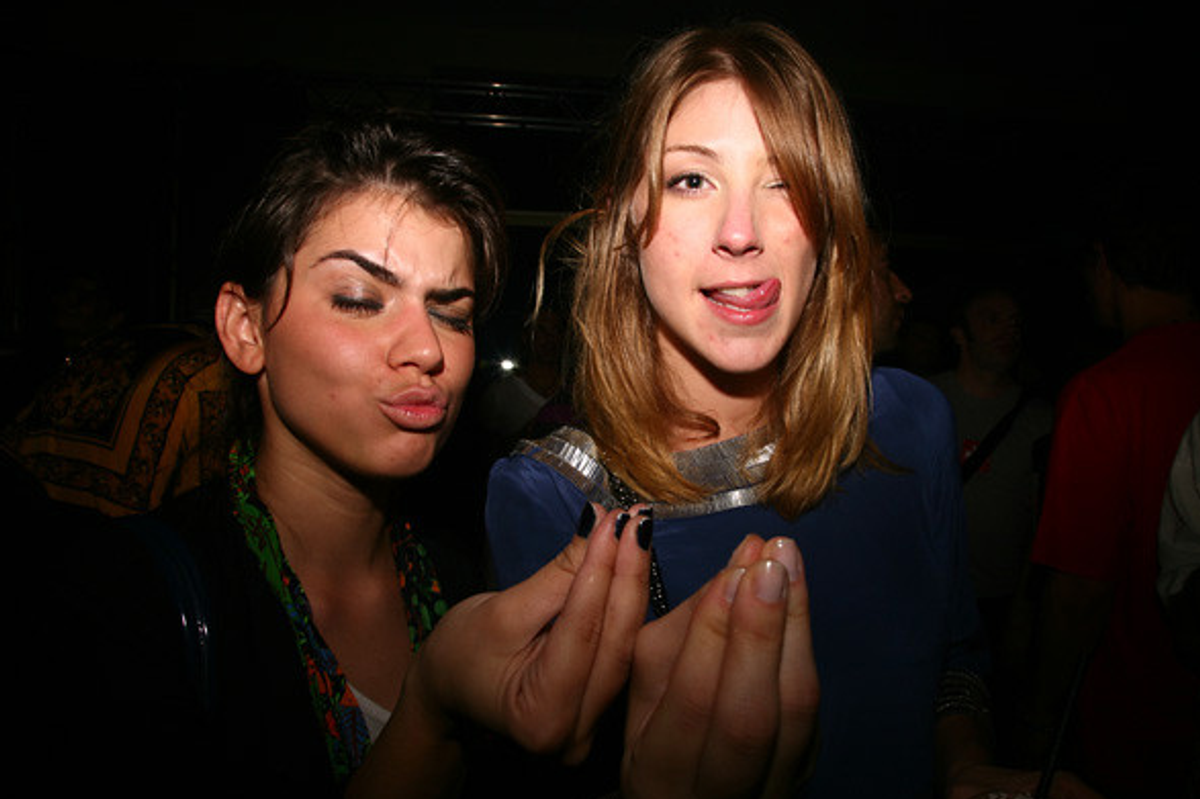Why Bill and Melinda Gates think time and energy are global superpowers.
Bill and Melinda Gates released their annual letter. Get excited.
Bill and Melinda Gates were chatting with high schoolers when they were asked, "If you could have one superpower, what would it be?"
Their answers to that question may seem pretty simple (and even a little bit boring). But don't be fooled ... they were more clever than they seem.
Melinda said she would want to have more time, and Bill said he would want more energy.
Of course, those super powers could apply to having, say, an additional hour to unwind at the end of a stressful day in Melinda's case or getting an extra energy boost at 3 p.m. (without relying on a third cup of coffee) in Bill's. But, as the duo explained in their foundation's annual letter, which was released this week, it would be great if their superpowers were also applicable to the whole world.
Being time poor (as one might call it) can change the trajectory of a person's whole life.
Yes, food, water, and shelter are all very important (obviously). But it's easy to forget that having access to energy — to charge your phone, wash your clothes, cook your food, get online — has an enormous impact on the time you spend every day simply trying to survive.
When people have more access to energy, that means people have more time, which Bill and Melinda explain will dramatically increase the quality of life for those in developing countries. It is these two interwoven factors — time and energy — that the Gateses focused on in their foundation's annual letter, and these three eye-opening infographics they chose to highlight show we definitely have room for improvement throughout the world:
1. Girls and women spend far more time doing unpaid work — especially in developing nations.
And "it's not just about fairness," according to the Gateses; as the letter reads, "assigning most unpaid work to women harms everyone: men, women, boys, and girls."
On average, women globally spend four and a half hours doing unpaid work — stuff that needs to get done by somebody in order for a society to function (caring for their children, preparing meals, etc.). For men, it's less than half that amount of time.
Graph via the Bill and Melinda Gates Foundation, used with permission.
Time poverty is a problem in two ways: It's sexist, and it especially hurts people in poor countries.
Take water, for instance. In most places in America, getting clean water is as easy as turning on a faucet. In poor countries, people — often young girls — spend hours every day walking miles to fetch it from a well. For a young person in a poor country — again, more times than not we're talking about girls — fetching water is more important than going to school, getting a job, and (eventually) living financially independent.
"Unless things change, girls today will spend hundreds of thousands more hours than boys doing unpaid work simply because society assumes it’s their responsibility," the Gateses wrote in their letter.
This not only hinders women on an individual level, it hinders a country's overall economic potential. When a woman is stuck fetching water instead of, say, opening a business, it's a bad thing for everyone.
And that brings us to energy.
2. In order to power the world, we need more clean, cheap energy.
Remember that woman who's fetching water? She'd have more time to go to school or start a business if she had access to tap water in her own home. Or an electric stove to prepare meals. Or a car to drive into town.
Having access to an energy source "means you can run hospitals, light up schools, and use tractors to grow more food," the Gateses wrote. And that makes a huge difference when it comes to quality of life.
It's not just enough to have access to energy; energy needs to be clean and cheap. The cheaper the energy, the more people who can afford it, and the cleaner the energy, the better off we'll all be tomorrow.
The good news? The world is slowly losing its dependence on carbon-emitting energy sources.
The bad news? We've got a long way to go.
Graph via the Bill and Melinda Gates Foundation, used with permission.
Some sources like the U.S. Energy Information Administration and the International Energy Administration put the percent of world renewable-resource energy as high as 13% as of 2012, but still — not that great, right?
It may not seem that important that our new energy sources are clean, seeing as poorer countries are in dire need of it. But it is vital we stay away from oil and coal looking forward because poor countries are actually hit worst when the world spews carbon into our atmosphere.
Which brings us to the point raised in the next chart:
3. The world became increasingly addicted to fossil fuels throughout the 20th century, and poor countries paid the most.
The more fossil fuels we burn, the more carbon is in our air, thus making the planet warmer. And in case you haven't heard, it's been pretty hot out there recently (and it has been for awhile).
See how much the line below spikes upward between about 1950 and 2010? Yeah, not good.
Graph via the Bill and Melinda Gates Foundation, used with permission.
Probably the most unjust thing about climate change, however, is that the people who contribute to it the least — those in underserved countries, who've used relatively little energy — have been affected the most.
Many people in poor countries rely on agriculture to survive. And when temperatures fluctuate or farmers get too much or too little rain, crops don't grow. When people live directly off the land in their own backyards, they're far more vulnerable to a changing climate.
What's more, a warming planet means more devastating (and frequent) storms. Poor countries don't have the infrastructures in place to be able to recover quickly from, say, a destructive hurricane, so their economies and livelihoods can be drastically affected by just one natural disaster.
But there's a light at the end of the tunnel. We're finally reducing our collective carbon footprint in substantial ways because world leaders have prioritized clean energy in recent years. In fact, 2015 may just be the first year that the global economy has grown while carbon output plateaued (or even declined). Things (not temperatures) are looking up.
Now Bill and Melinda want to know — what would be your superpower?
Something that helps eradicate disease? Provides more access to clean water?
Join the conversation and answer the question "What can you do to improve the world?" by tweeting and posting with the hashtag #SuperpowerForGood.



 Teens hanging out in a living room.via
Teens hanging out in a living room.via  Teenagers eating pizza.via
Teenagers eating pizza.via  Teenagers eating pizza.via
Teenagers eating pizza.via 
 A guy playing guitar at a party. via
A guy playing guitar at a party. via  Argument at a backyard party.via
Argument at a backyard party.via  People hanging out at a house party.via
People hanging out at a house party.via  A woman who slept on the floor.via
A woman who slept on the floor.via 

